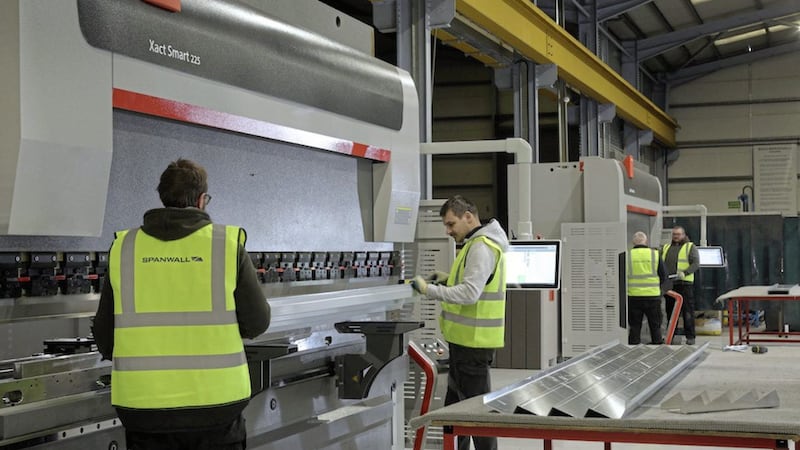Northern Ireland’s private sector recorded a return to growth in May, new analysis from Ulster Bank suggests.
Business activity increased for the first time in six months, according to the lender’s latest growth tracker.
The survey pointed to the headline business activity index rising significantly to 50.9 in May from 47.0 in April.
A reading above 50 on the index indicates an overall increase in activity compared to the previous month.
The report, which is based on feedback from 200 firms across the north’s construction, services, manufacturing and retail sectors,also highlighted a pick-up in overall business confidence.
Three out of the four sectors saw activity rise during May.
Construction output posted its first increase in seven months, services activity expanded again, and manufacturing production continued to grow.
While retail activity still decreased, the rate of decline was much less severe than in the prior period. New orders continued to fall for the seventh consecutive month, but the pace of contraction eased considerably, marking the least pronounced fall since last November.
Employment levels continued to decrease for the fourth month running, though the rate of job losses slowed compared to April.
Some firms reduced staff to lower costs, while others cited difficulties finding suitable recruits.
Companies continued to face steep increases in input costs, mainly attributed to recent rises in the national minimum wage and employer national insurance contributions.
However, the pace of input price inflation softened for the second month and was the weakest so far in 2025.
Selling prices also rose sharply, albeit at a slightly slower pace than before, but Northern Ireland recorded the steepest increase in output prices among all 12 UK regions and nations8.
Looking ahead, sentiment regarding the year-ahead outlook for business activity saw a significant improvement in May compared to April.
Despite this pick-up, business confidence in Northern Ireland remained the lowest across the UK.
Sebastian Burnside, chief economist for Ulster Bank, said the findings offer some encouragement for the economy.
“If these trends continue in the months ahead, we will hopefully see firms looking to take on additional staff, although the twin pressures of rising overheads and difficulties finding suitable staff were reported again in May,” he said.
“While higher staff costs continued to push up overall input prices, inflationary pressures softened since April, again painting a brighter picture as we head towards the mid-point of the year.”


